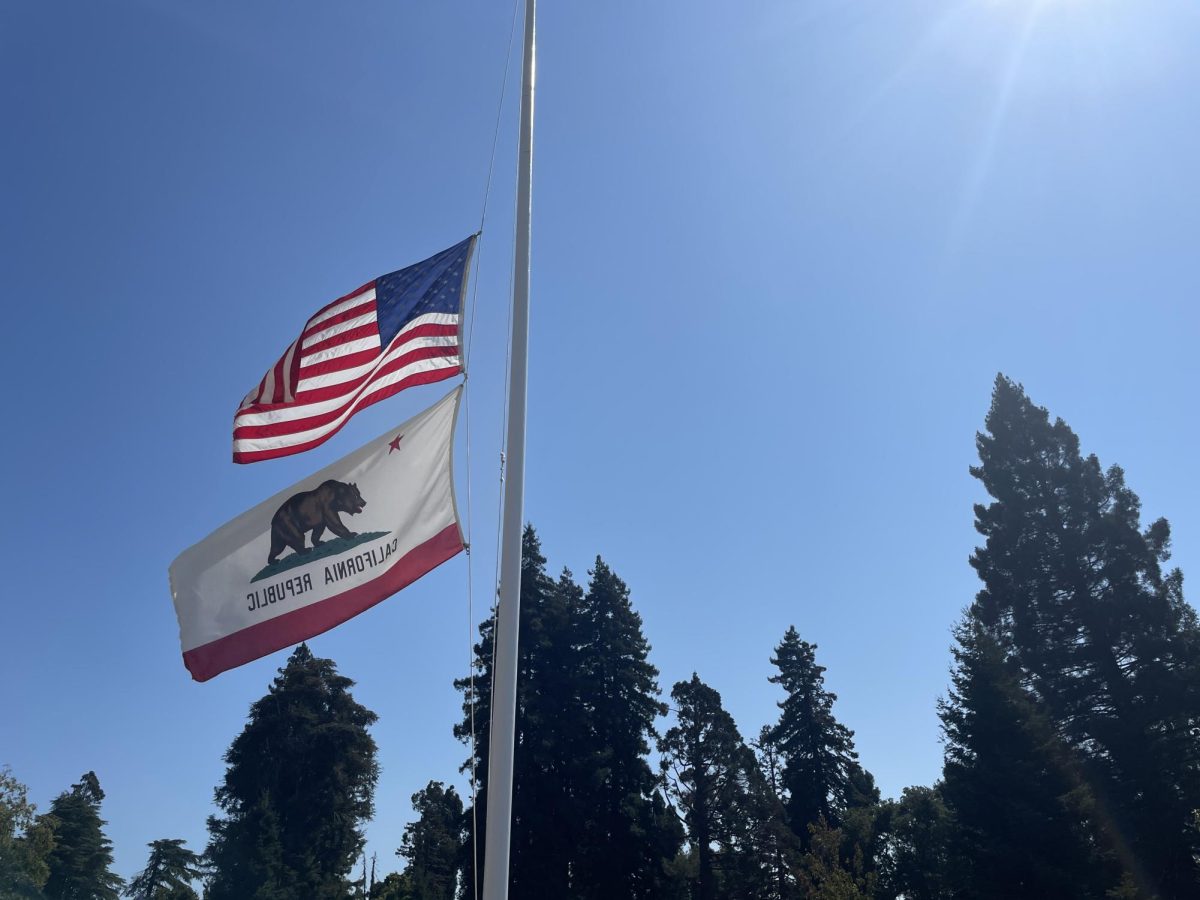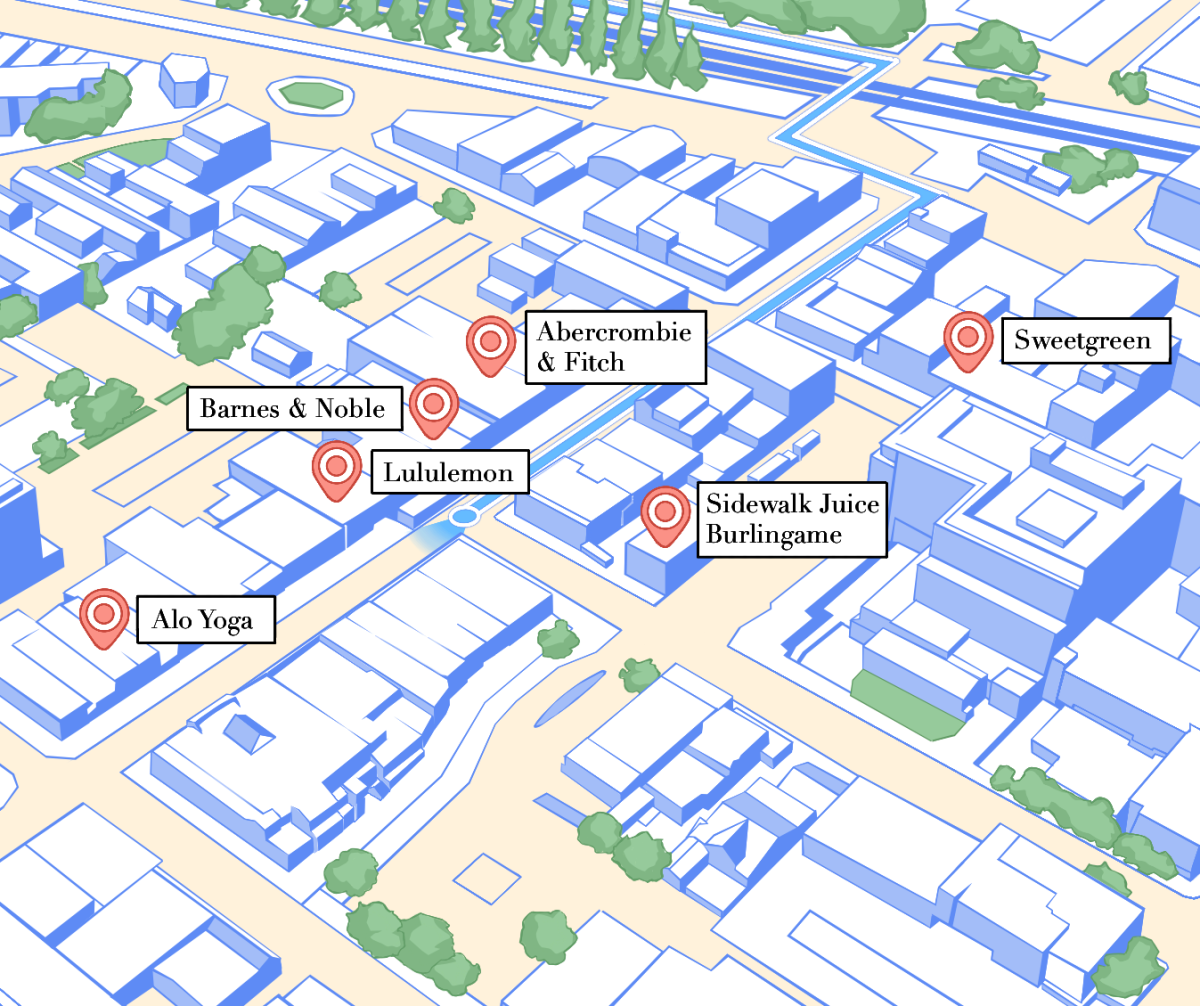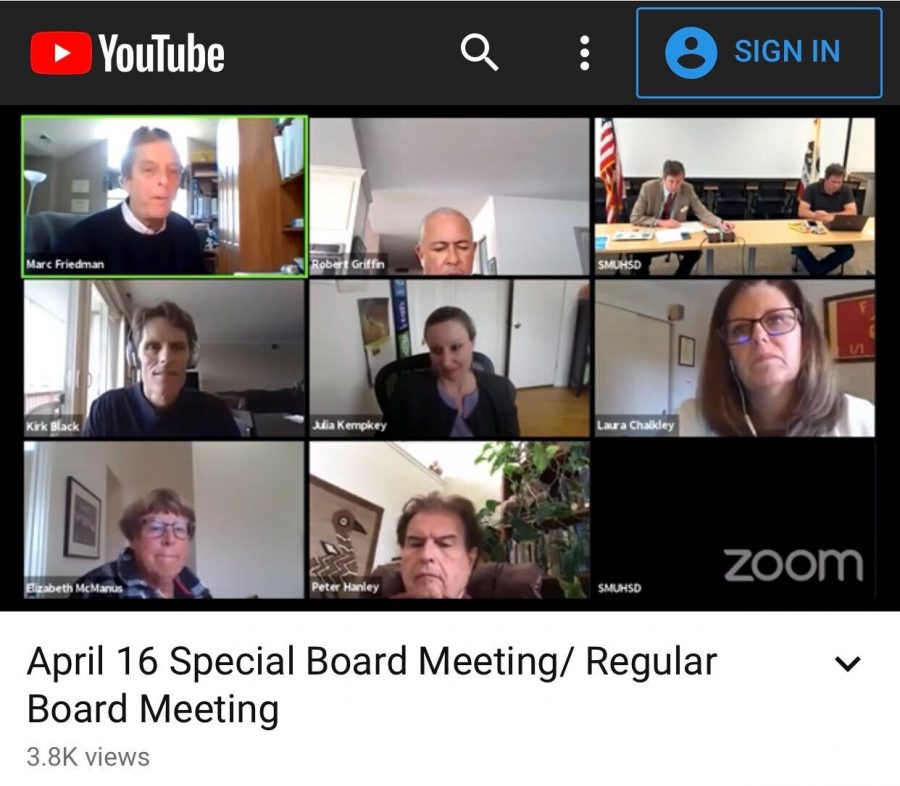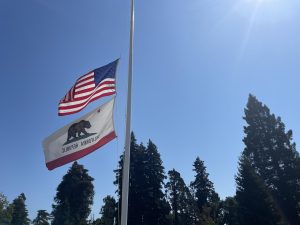Board approves Credit/No Credit plan in 3-2 vote
The five Board members met in a public Zoom call on Thursday night, which was also broadcast live on YouTube.
April 18, 2020
The San Mateo Union High School District (SMUHSD) Board of Trustees approved a Credit/No Credit grading policy for this semester after a 3-2 vote Thursday night. During the special meeting, Board members discussed various solutions to the educational difficulties that the coronavirus pandemic has caused. After hearing from SMUHSD students, teachers and parents, three Board members voted in favor of the Credit/No Credit policy and two voted against it.
Under the new policy, all students who are passing their classes will receive credit on their transcript for this semester without a letter grade. The credit given will not factor into students’ GPAs, and students who do not receive credit for a course will be able to make the class up at a later point in time.
“They don’t just have to follow the numbers when giving credit. But if someone has 60 or more, they have to give them credit,” Board member Marc Friedman said. “Say you have a student now who has 98 and just decides to pack it in and it falls to 65 … they still have to give them the credit.”
Other options discussed included individual choice for Credit/No Credit or letter grades, Credit+/Credit/No Credit and letter grades “with compassion” based on student circumstances. However, teachers and administrators strongly preferred universal Credit/No Credit. Proponents of Credit/No Credit stressed that over 30% of SMUHSD students “have obstacles that are exaggerated by the present circumstances” and that over 60% of SMUHSD students currently have to help their families with childcare throughout the day. These difficulties make it challenging for many students to succeed in their coursework for the rest of this semester.
“We are going through a traumatic experience that is affecting every student and staff member immensely and in different ways,” senior Cecilia Lunaparra said. “Keeping letter grades or even creating an option affects disadvantaged students disproportionately and is unfair. Either way, colleges and universities are mostly not going to use this semester in admissions because of inflated grates and diverse situations.”
Many of the arguments presented related to the colleges admissions process. In particular, most opponents of universal Credit/No Credit expressed concerns about the policy’s impact on college admissions, especially for juniors and students taking advanced courses.
“I don’t support the Credit/No Credit grading system for this semester because I think it’s unfair to many students, especially those with strong grades so far in the semester and those who had made improvements to their grades since now that improvement won’t be recognized,” junior Isabella Arcoleo said. “If we’re looking at the original options [the Board] presented, I preferred … student choice for Credit/No Credit or [letter] grades.”
The decision to move to Credit/No Credit took into account not only the inequalities and stressors exacerbated by the coronavirus pandemic but also the decisions of other high schools and colleges. Notably, the Palo Alto Unified School District was one of the first to adopt a Credit/No Credit policy on March 25. Since then, many other districts in the Bay Area have switched to similar plans. During its period of consideration, SMUHSD also consulted with the University of California (UC) and California State University (CSU) systems and read admissions statements put out by Columbia, Harvard and other universities. All of the colleges consulted expressed that they will not hold this semester against future applicants. In fact, even if regular letter grades were presented to colleges, the offices of admissions could not evaluate them in the same context as usual. Some universities also clarified that they would have difficulties validating A-G course requirements for prospective students if SMUHSD adopted multiple grading policies, such as awarding some letter grades and some Credit/No Credit grades.
The special Board meeting lasted over four hours. Five hundred people participated on Zoom, and over 500 more watched the meeting live on YouTube. In the period leading up to the discussion, which was delayed twice, hundreds of community members emailed the Board to express their opinions about the proposed Credit/No Credit policy.
“Four hours on one topic is unprecedented,” Friedman said. “I’ve been on the Board nine years.”
Friedman added that most of the student and parent emails he received were against the decision the Board ultimately reached, while teachers and administrators favored Credit/No Credit almost unanimously. He received most emails from Burlingame residents, though he added that this might be because he lives in Burlingame himself. Friedman voted against the decision because he believes the emphasis colleges will now place on other aspects of students’ applications besides GPAs will disadvantage lower-income students who have a harder time obtaining prestigious internships and going on service trips.
“I’ve heard students from families in Burlingame … since they don’t have the spring semester grades on their SMUHSD transcripts … they’re taking online courses from WASC-accredited academies,” Friedman said. “They can send [that] transcript in with the SMUHSD transcript, and what I understand is the UCs and CSUs will use the grades on those transcripts … That just creates additional equity issues because those students have the ability to go hunt out other AP classes.”
Monday will be a teacher workday for district staff to shift their class plans to fit the new grading policy. The Board will provide clearer plans to teachers on the Credit/No Credit policy and how to evaluate students. In June, staff members will report to the Board to assess potential distance learning plans for the fall.
“It’s about how do you maximize the learning, how do you improve the quality of the instruction and curriculum we’re delivering remotely, because I think any way you look at it, we’re going to be delivering curriculum and instruction remotely in the fall,” Board member Peter Hanley said during Thursday’s meeting. “To what degree is still up in the air, but you look at any scenario of how we open schools, it’s going to be with social distancing and it’s not going to be under any normal conditions.”
















































Mary Tsao • Apr 18, 2020 at 9:36 pm
Excellent piece parsing the details of a very emotional meeting.
John Horgan • Apr 18, 2020 at 7:22 pm
This story is an outstanding piece of work. Excellent, dispassionate coverage of an unprecedented situation. The writer/reporter deserves major kudos for her finished product. Quite professional in the final analysis. Congratulations. And thank you for your efforts during a trying time indeed. JH